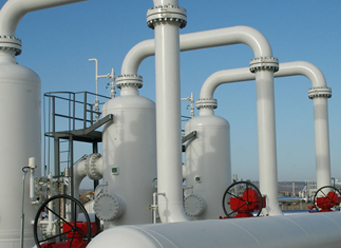Lao
- Afrikaans
- Albanian
- Amharic
- Arabic
- Armenian
- Azerbaijani
- Basque
- Belarusian
- Bengali
- Bosnian
- Bulgarian
- Catalan
- Cebuano
- Corsican
- Croatian
- Czech
- Danish
- Dutch
- English
- Esperanto
- Estonian
- Finnish
- French
- Frisian
- Galician
- Georgian
- German
- Greek
- Gujarati
- Haitian Creole
- hausa
- hawaiian
- Hebrew
- Hindi
- Miao
- Hungarian
- Icelandic
- igbo
- Indonesian
- irish
- Italian
- Japanese
- Javanese
- Kannada
- kazakh
- Khmer
- Rwandese
- Korean
- Kurdish
- Kyrgyz
- Lao
- Latin
- Latvian
- Lithuanian
- Luxembourgish
- Macedonian
- Malgashi
- Malay
- Malayalam
- Maltese
- Maori
- Marathi
- Mongolian
- Myanmar
- Nepali
- Norwegian
- Norwegian
- Occitan
- Pashto
- Persian
- Polish
- Portuguese
- Punjabi
- Romanian
- Russian
- Samoan
- Scottish Gaelic
- Serbian
- Sesotho
- Shona
- Sindhi
- Sinhala
- Slovak
- Slovenian
- Somali
- Spanish
- Sundanese
- Swahili
- Swedish
- Tagalog
- Tajik
- Tamil
- Tatar
- Telugu
- Thai
- Turkish
- Turkmen
- Ukrainian
- Urdu
- Uighur
- Uzbek
- Vietnamese
- Welsh
- Bantu
- Yiddish
- Yoruba
- Zulu
Telephone: +86 13120555503
Email: frank@cypump.com
ກ.ຍ. . 24, 2024 13:26 Back to list
Efficient Solutions for Slurry Dewatering Pump Applications and Technologies
Understanding Slurry Dewatering Pumps
Slurry dewatering pumps are essential components in various industrial applications, particularly in mining, construction, and wastewater treatment. These pumps are specifically designed to handle slurries—mixtures of liquid and solid particles—efficiently and effectively. In this article, we’ll explore the importance, functionality, and advantages of slurry dewatering pumps.
What is a Slurry?
Before diving into the specifics of slurry dewatering pumps, it is important to understand what a slurry is. A slurry is a thick mixture of solid particles suspended in a liquid. It is commonly produced in mining operations, where ore is processed and waste materials are generated. The ability to manage and transport this slurry is crucial for maintaining operational efficiency and minimizing environmental impact.
Function of Slurry Dewatering Pumps
Slurry dewatering pumps are designed to separate water from solid particles in a slurry. This process is vital for recovering valuable materials and disposing of waste effectively. These pumps are capable of handling highly abrasive and viscous slurries without clogging or damaging the equipment. They typically feature robust materials such as cast iron, stainless steel, or high-performance polymers to withstand the harsh environments they operate in.
The primary function of these pumps is to transport the slurry to a dewatering system, where further separation processes take place. This can include filtration, centrifugation, or evaporation methods, depending on the specific needs of the operation. The result is a dry solid product that can be disposed of or reused, as well as a reduced volume of liquid that needs to be managed.
slurry dewatering pump

Advantages of Slurry Dewatering Pumps
1. Efficiency Slurry dewatering pumps operate efficiently, minimizing energy consumption while maximizing throughput. This efficiency is critical in large-scale operations where the management of resources can significantly impact profitability.
2. Durability Given their robust design, slurry pumps are built to handle tough conditions, including high pressures and abrasive materials. Their durability leads to longer operational life and less frequent maintenance, which is crucial for continuous operations.
3. Versatility These pumps can handle a wide range of slurries with varying solids content and viscosity. This versatility makes them suitable for applications across multiple industries, including mining, construction, and dredging.
4. Environmental Impact By effectively managing slurry waste, these pumps help mitigate the environmental impact of industrial operations. Proper dewatering and waste management practices reduce the risk of contamination and promote sustainable practices.
Conclusion
Slurry dewatering pumps play a pivotal role in the efficient management of slurries in various industries. Their specialized design and robust construction make them indispensable for handling challenging materials while maximizing resource recovery and minimizing environmental impact. As industries continue to evolve and face new challenges, the importance of reliable slurry dewatering solutions will undoubtedly grow, highlighting the need for continued innovation and investment in pump technology.
-
Heavy-Duty Mining Sludge Pumps - Wear-Resistant Slurry Handling
NewsAug.02,2025
-
Horizontal Split Case Pump with GPT-4 Turbo | High Efficiency
NewsAug.01,2025
-
ISG Series Pipeline Pump - Chi Yuan Pumps | High Efficiency, Durable Design
NewsAug.01,2025
-
Advanced Flue Gas Desulfurization Pump with GPT-4 Turbo | Durable & Efficient
NewsJul.31,2025
-
ISG Series Vertical Pipeline Pump - Chi Yuan Pumps | Advanced Hydraulic Design&Durable Construction
NewsJul.31,2025
-
ISG Series Vertical Pipeline Pump - Chi Yuan Pumps | Energy Efficient & Low Noise
NewsJul.31,2025










